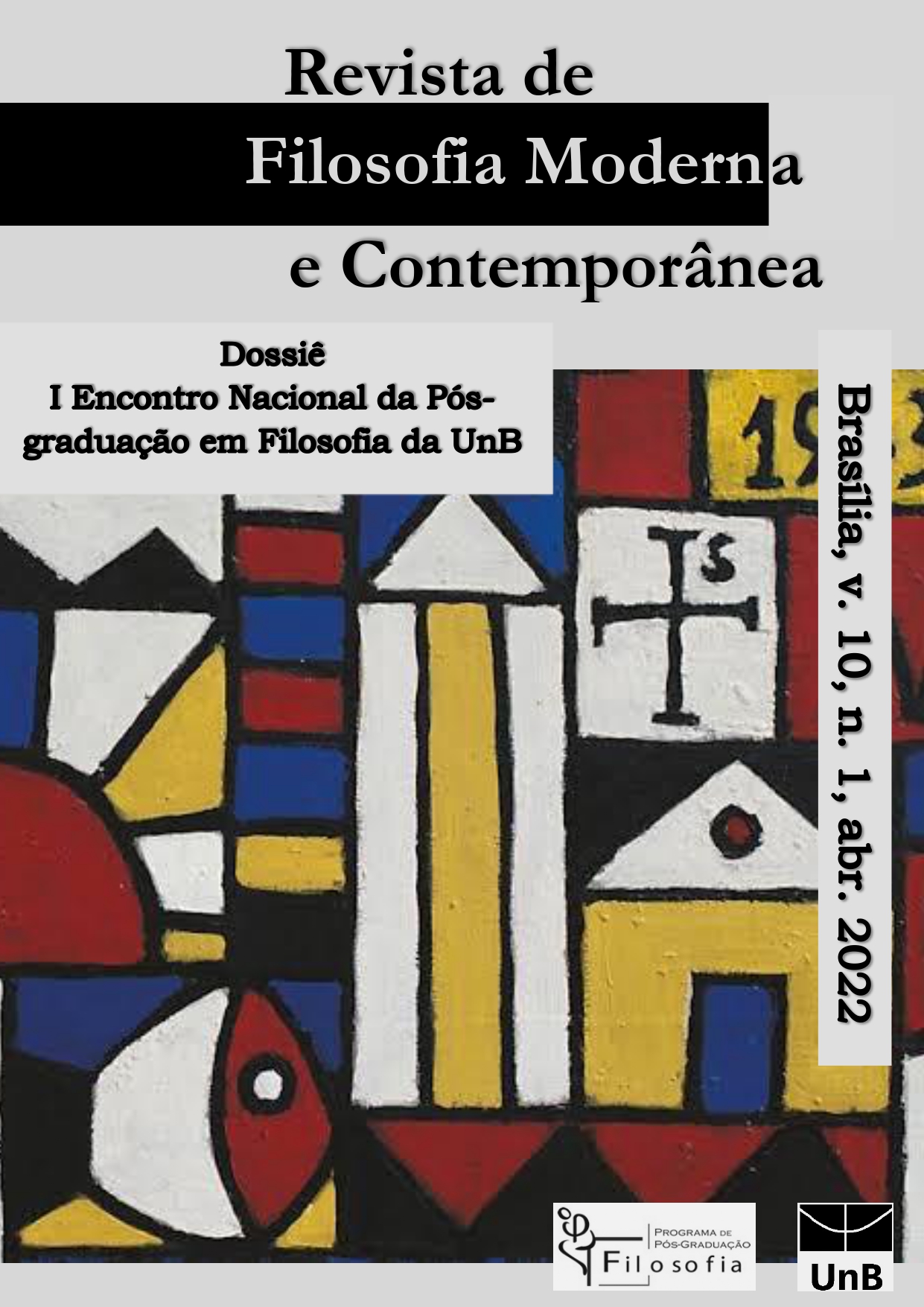Religious Sources of the Self
Modern Subjectivity from the Axial Heritage
DOI:
https://doi.org/10.26512/rfmc.v10i1.47755Keywords:
Personal Identity. Axial Era. Religion. Charles Taylor.Abstract
In the present article we aim to thematize the conception of personal identity from a historical articulation based on the notion of axial era. With this strategy, we want to pursue a double objective, namely: (i) to explain the concept of the axial age as an important historical axis for Western culture, focusing on the changes in the role of religion in society; and (ii) to trace a certain constitutive image of modern personal identity from such a historical perspective. In this way, we argue that the personal identity of the modern subject is rooted in a certain reconfiguration of the ways in experiencing religion, resulting in a disembedding of the individual in his society and a growing need for self-realization. Then, we aim to offer an alternative opening for the understanding and assimilation of the original speeches in its contrast with the Western culture.
Downloads
References
BELLAH, R. What is Axial about the Axial Age? European Journal of Sociology, Vol. 46, No. 1, Religion and Society, pp. 69-89, 2005.
ELIADE, M. O Sagrado e o Profano: A Essência das Religiões. São Paulo: Editora WMF Martins Fontes, 2018.
EISENSTADT, S. The Axial Conundrum between Transcendental Visions and Vicissitudes of Their Institutionalizations: Constructive and Destructive Possibilities. In: The Axial Age and its Consequences. Cambridge: The Belknap Press of Harvard University Press, 2012.
HICK, J. Uma Interpretação da Religião: Respostas Humanas ao Transcendente. Petrópolis: Editora Vozes, 2018.
JASPERS, K. The Origin and Goal of History. Londres: Yale University Press, 1953.
JOAS, H. The Axial Age Debate as Religious Discourse. In: The Axial Age and its Consequences. Cambridge: The Belknap Press of Harvard University Press, 2012.
MARSHALL, B. The Politics of Authenticity: Radical Individualism and the Emergence of Modern Society. Nova York: Atheneum, 1972.
MACINTYRE, A. After Virtue. Notre Dame: University of Notre Dame Press, 1981; _______. Whose Justice? Which Rationality? Notre Dame: University of Notre Dame Press, 1988.
ROUSSEAU, J.J. Discurso sobre a origem e os fundamentos da desigualdade entre os homens. Trad. Lourdes Santos Machado. “Coleção Os Pensadores”. São Paulo: Nova Cultural, 1999.
TAYLOR, C. The ethics of athenticity. Harvard University Press, Cambridge, 1991.
_______. What Was the Axial Revolution? In: The Axial Age and its Consequences. Cambridge: The Belknap Press of Harvard University Press, 2012.
RAWLS, J. A Theory of Justice. Cambridge: Harvard University Press, 1971.
Downloads
Published
How to Cite
Issue
Section
License
Copyright (c) 2022 Journal of Modern and Contemporary Philosophy

This work is licensed under a Creative Commons Attribution-NonCommercial-NoDerivatives 4.0 International License.
Copyright for articles published in this journal is retained by the authors, with first publication rights granted to the journal. By virtue of their appearance in this open access journal, articles are free to use, with proper attribution, in educational and other non-commercial settings.


